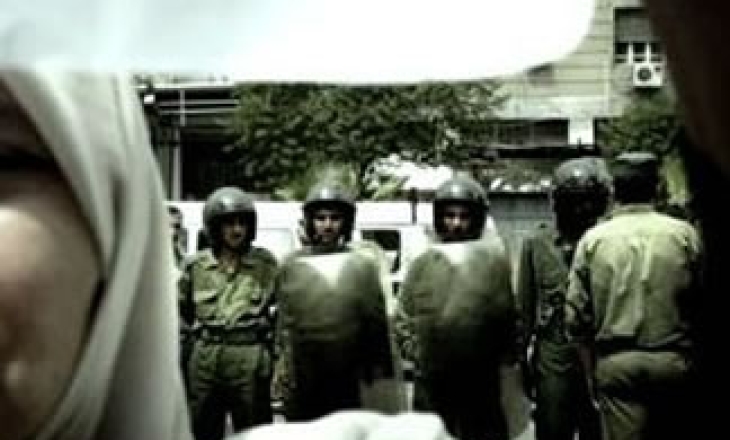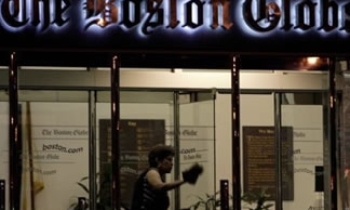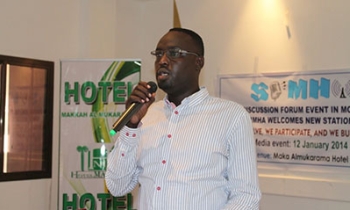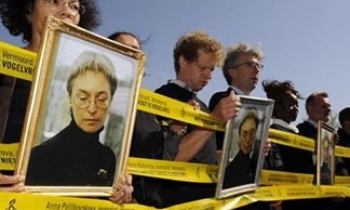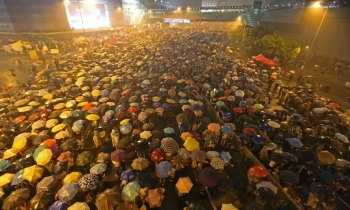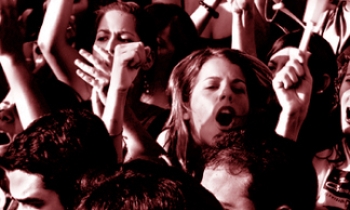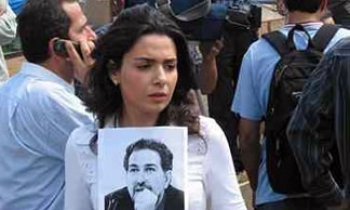Twelve prominent human rights activists, including three leading journalists, who advocate for reform in Syria have been sentenced to two and a half years in prison. The leaders of the Damascus Declaration for Democratic Change—the largest opposition coalition in Syria—were sentenced on October 29 under criminal legislation that prohibits “spreading false news” and “weakening national sentiment”.
Paris-based Reporters sans frontières (RSF) has expressed outrage at the sentences and called on the international community to take a greater interest in the fate of prisoners of conscience in Syria.
“These disgraceful sentences were to be expected, given Syria’s appalling human rights record, but they are nonetheless shocking,” RSF said. “The international community cannot continue treating this regime with kid gloves if it persecutes its journalists and civil society in such a brutal manner. These dissidents, who have been gagged by a subservient judicial system, need the support of all those who are committed to freedom of opinion and expression.”
"This is harsh justice more representative of a darker age and not acceptable in the modern world," said International Federation of Journalists (IFJ) General Secretary Aidan White. "The government of Syria is trying to crush a peaceful movement and the spirit of freedom in its brutal treatment of these courageous people."
According to RSF, the Damascus Declaration members sentenced were Fida’a Al-Horani (a doctor), Ali Abdallah (a journalist), Akram Al-Bunni (a journalist), Riyad Seif (an industrialist and former parliamentarian), Fayez Sara (a journalist), Ahmad Taama (a doctor), Jabr Al-Shufi (a civil servant), Walid Al-Bunni (a doctor), Yasser Al-Iti (a doctor), Mohammed Hajji Darwish (a civil servant), Marwan Al-Aach (an engineer) and Tala Abu-Dan (a painter and sculptor).
After the president of the Damascus court of assizes announced the sentences, the 12 defendants joined hands and shouted pro-democracy slogans. Their lawyers have 30 days to file appeals. Khalil Maatouk, a member of their legal defence team, condemned what he called a “political trial.”
"The international community, and particularly UNESCO, must be discriminating in its recognition of and activities with countries that do not respect fundamental human rights and freedoms," White said. "Instead of lauding Syria, the United Nations body responsible for promotion of free expression should be exposing the violations of democratic principles in Damascus and calling for change."
Signed in October 2005 by opposition representatives and leading members of civil society, the Damascus Declaration is a call for change based on political freedom, respect for ethnic and religious minorities, separation of powers and free expression.
More than 160 members of the Damascus Declaration National Council met in the Syrian capital on December 1, 2007 to elect a secretariat and to reaffirm their commitment to democratic reform at the end of a “peaceful and progressive process.”
Around 40 of its members were arrested in the course of the following five or six months, and 12 of them were eventually charged with publishing false information with the aim of harming the state, membership of a secret organisation designed to destabilise the state and inciting ethnic and racial tension.
Syria is now the Middle East’s second largest prison for the media, after Iran, with a total four journalists and five cyber-dissidents currently detained. It was ranked 159th out of 173 countries in the world press freedom index which RSF issued on October 22.
US-based Human Rights Watch said that the detention and trial of the activists was marred from the beginning. Syrian security forces held the activists initially for up to 40 days in incommunicado detention. Eight of the 12 detainees told the investigative judge that State Security officials beat them during their interrogation and forced them to sign false statements “confessing” that they planned to take money from foreign countries in order to divide the country by giving the Kurds a separate state. One of the detainees, `Ali al-Abdullah, suffered injury to his ear as a result of the beating he endured. The court did not order any independent investigation regarding the allegations of ill-treatment.
During the trial, the activists confirmed their involvement in the Damascus Declaration, but pleaded not guilty and denied the charges against them. In their defence session on September 24, the defendants expressed doubts about the trial since it was their “freedom of expression that was on trial.” Another detainee, Walid al-Bunni, a physician, told the court during his defense that “getting into the details of my defense is useless, but I will ask: what is the basis of the accusations?”
One of the defence lawyers told HRW that the defence team will likely appeal the sentence within the required 30 days. He summarised the judgment by saying “membership in the Damascus Declaration is now criminalized.” The wife of one of the sentenced detainees who had been jailed in the past for his activism expressed her disgust at the trial. “We don’t know what to feel anymore. I don’t care if the sentence is for 2.5 years or 10 years. My husband should not be in jail in the first place.” sy

